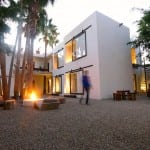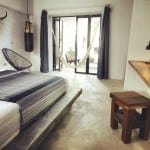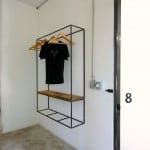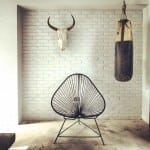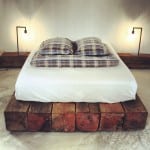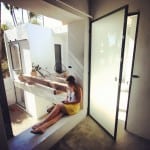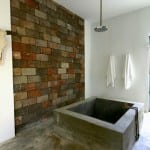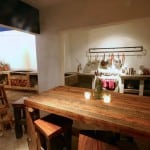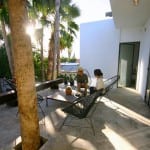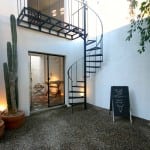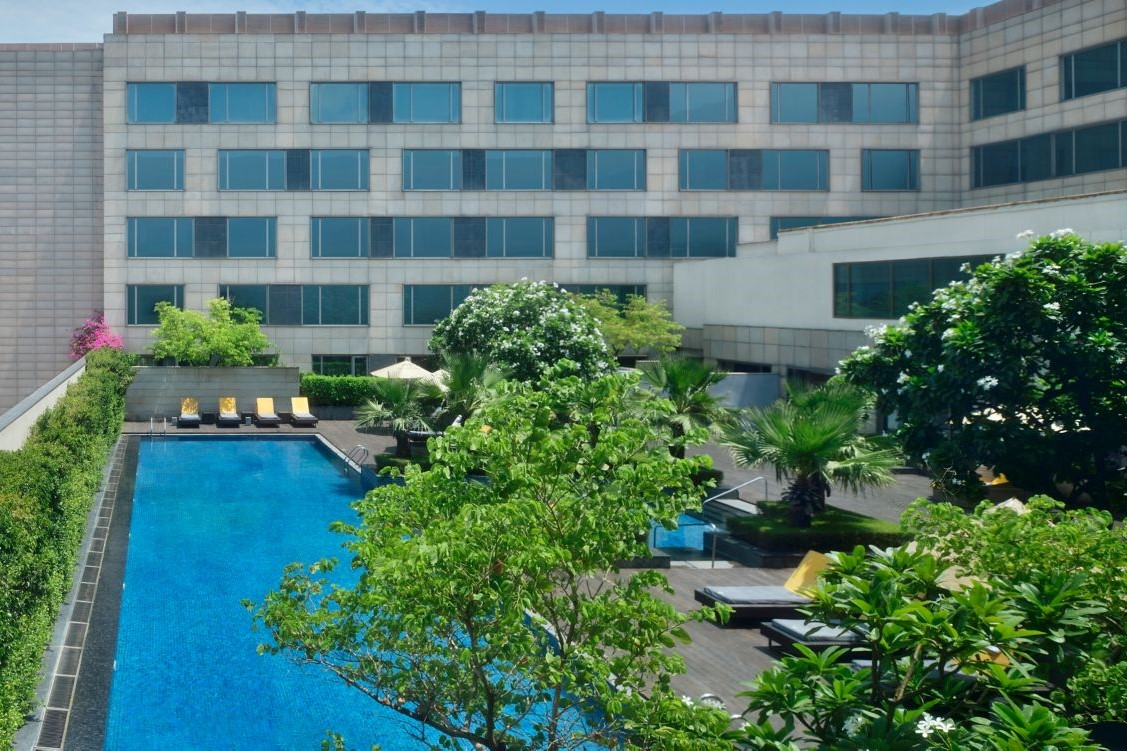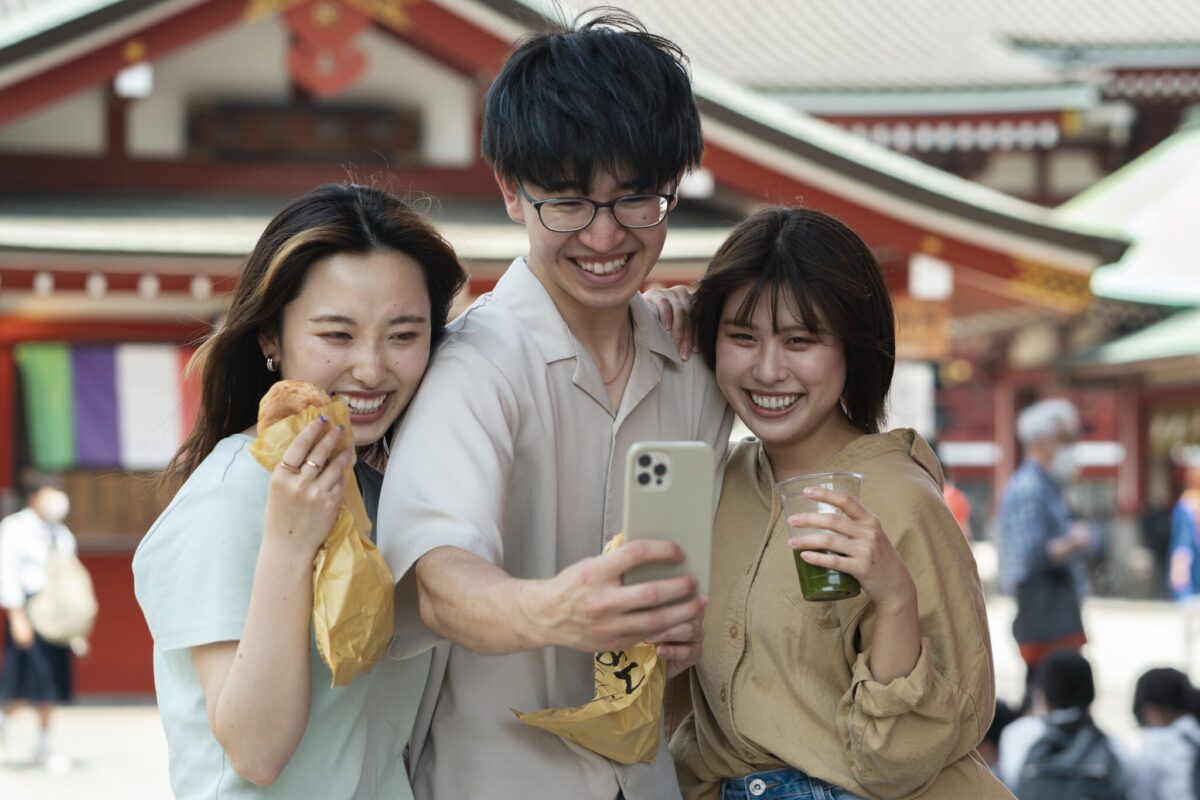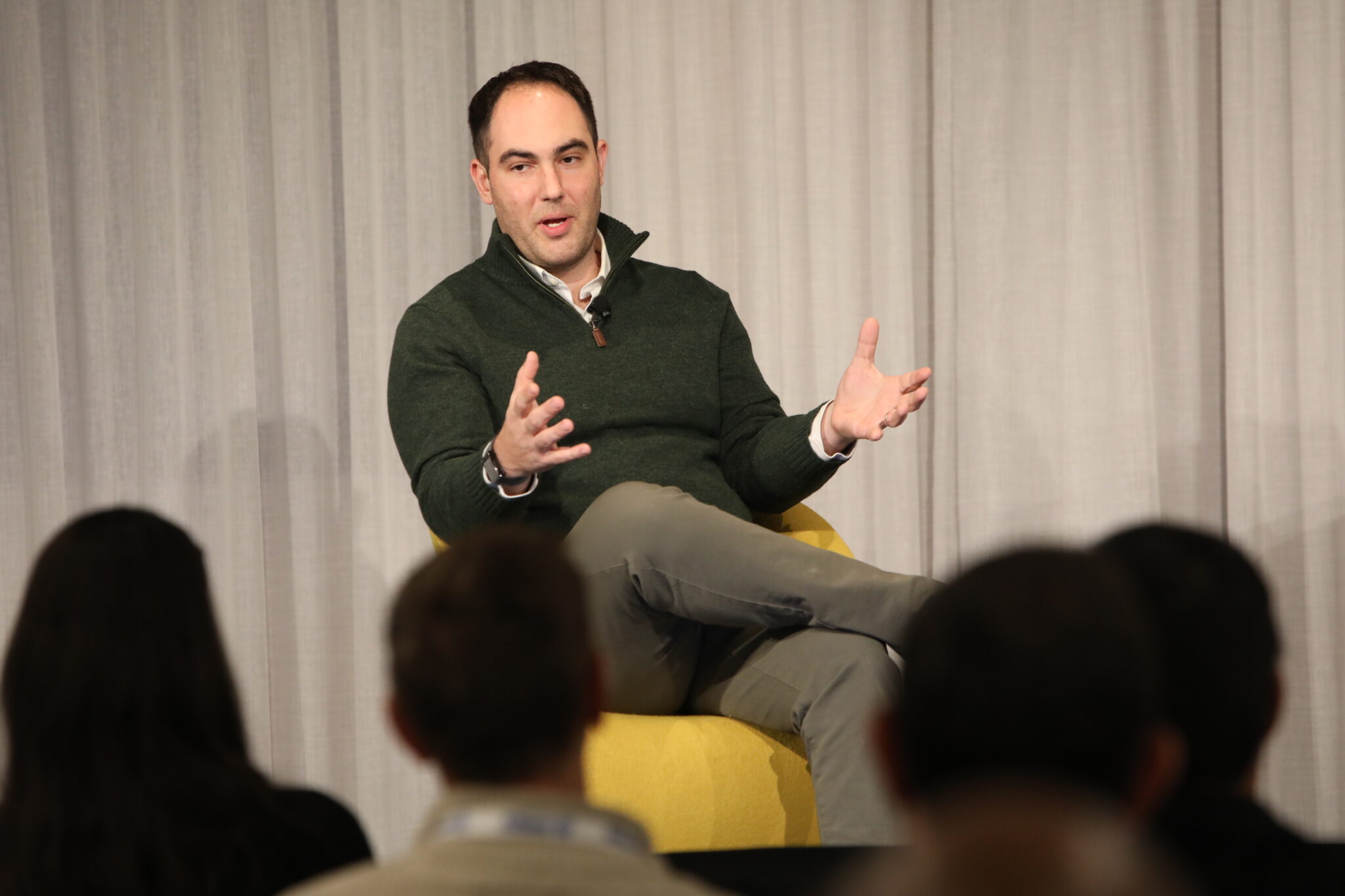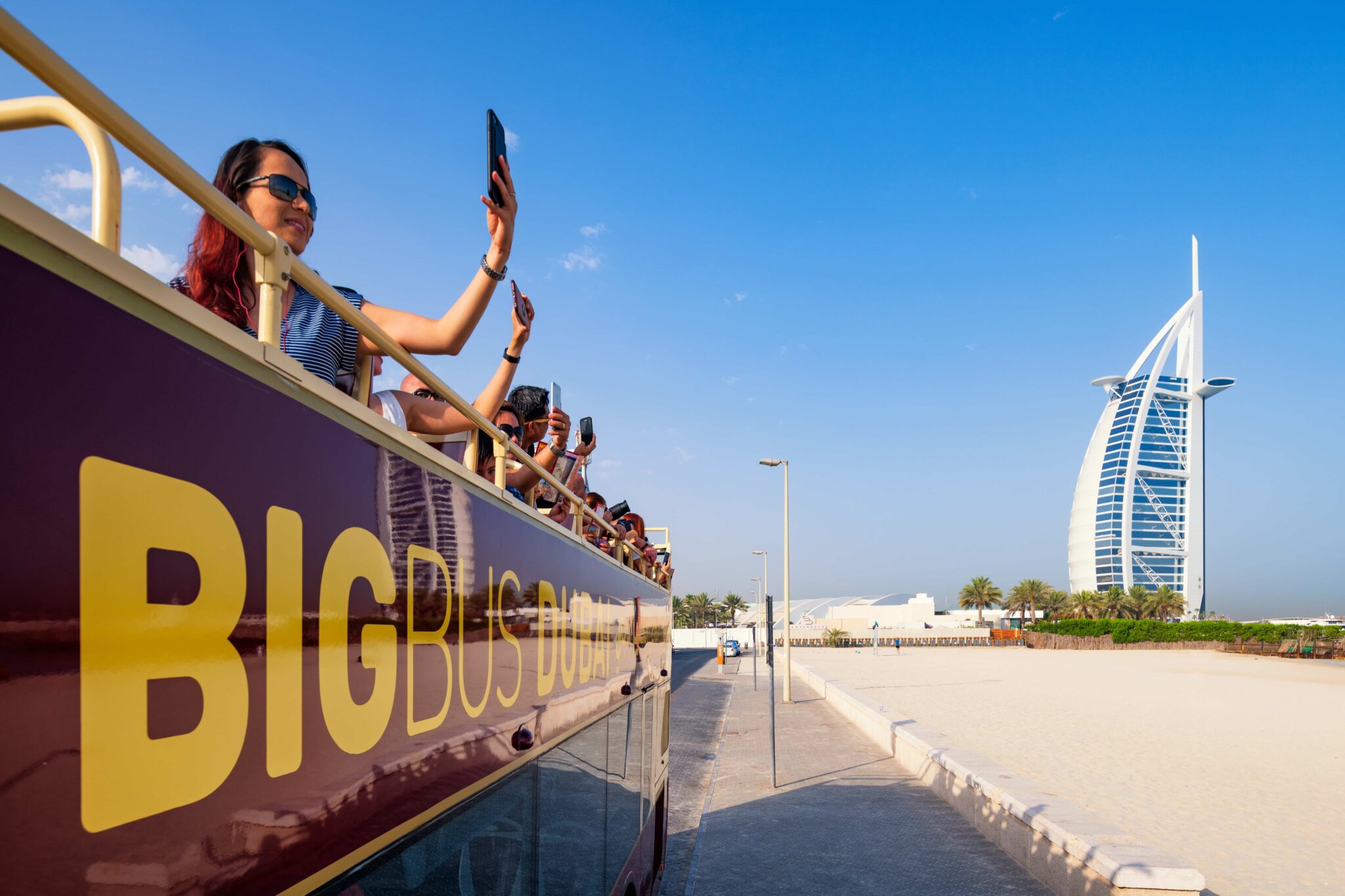The Mexican Hotel That’s Ditched a Reservation System for Airbnb
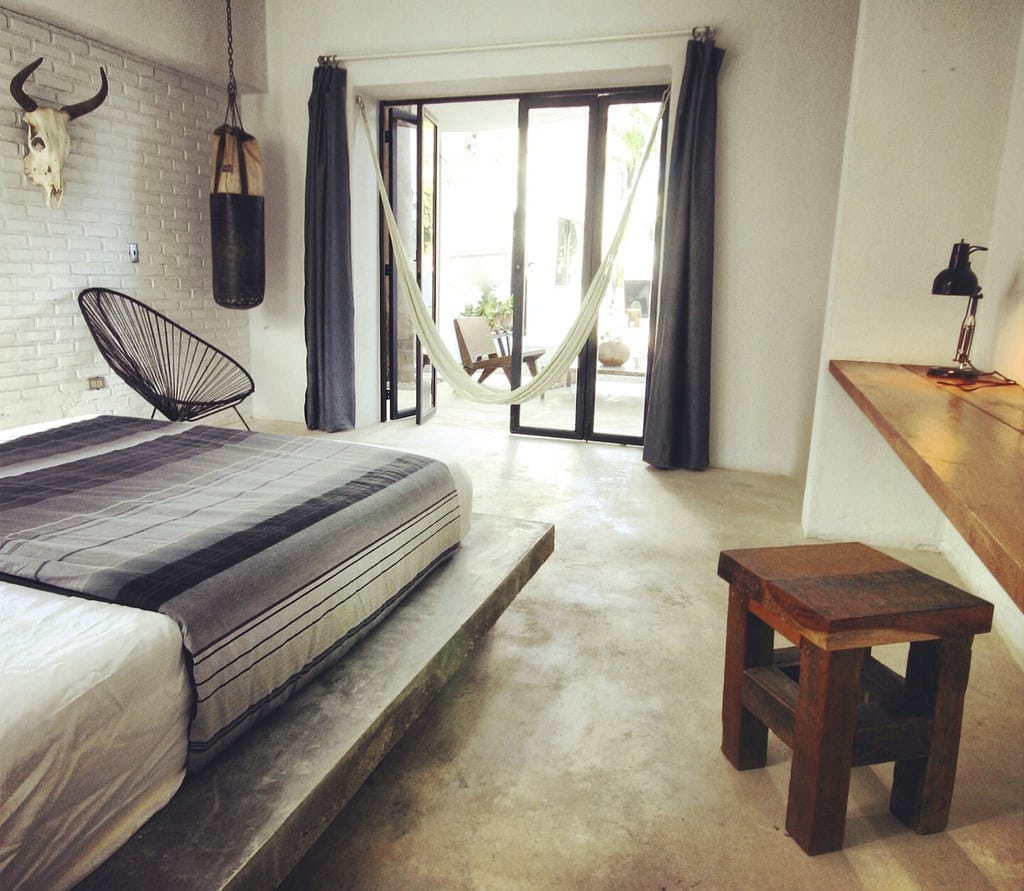
Skift Take
- Courtyard and firepit
- Guest room
- Wardrobe
- Urban ranch surfer chic
- Reclaimed bed pad
- Best hotel room windows ever
- Open shower concept
- Communal kitchen
- Courtyard
- Gift shop
One of Airbnb’s stated purposes is to help people become micro-entrepreneurs, but ex-Vancouverite Stu Waddell is using the booking site to become a micro-hotelier in Baja California, Mexico.
In January, he launched the eight-room Drift San Jose inside the historic arts district in San Jose del Cabo. Waddell converted the two-story building into a minimalist, modernist hotel that blends urban loft style with the area’s ranching history.
The overarching theme of Drift as a burgeoning brand puts a priority on getting out of the way of its guests. It’s an entirely deconstructed experience and utterly efficient in its delivery. In effect, the emphasis is put on the guest and the energy created among the guests.
Speaking with Waddell, who is 45, he is squarely focused on the 25-35 age demographic and their needs, although he’s finding quickly that Drift is resonating with a much broader consumer base.
“Millennials really respond to, ‘Here’s your key. Do it yourself,’ whereas with Boomers, it’s often, ‘We’re going to do everything for you. You don’t have to think about anything,’” Waddell explains. “So, basically, the Millennials are saying, ‘We don’t want the hotel to give us an experience. We want to create our own experience.’ So I’m giving them kind of a blank slate. I’m just providing a platform, a launching pad for them to create their own stories.”
The product experience is as spare as you can get. There’s a communal kitchen where guests prepare their own meals, a couple courtyards for people to mingle, a firepit and a rooftop lavender garden.
Because Drift San Jose is only bookable via Airbnb, it frees Waddell from having to manage reservations, payments, cancellations, and sales and marketing. This could be the first hotel we’ve covered that doesn’t own a credit card machine.
Nightly rates are set at $75, and guests can choose whatever room they want upon arrival, based on availability.
“Airbnb started out just being practical, but the more I’m using it the more I realize that it’s bringing me my exact target audience,” says Waddell. “And because my hotel is not traditional, and it’s in a town full of traditional hotels, the Airbnb clientele is already open to trying something new.”
The DIY hotelier knows a thing or two about traditional resorts, having worked in his previous life as a creative director on resort development, planning and design. Waddell eventually tired of working with people, however, who wanted to make resorts designed to be “everything for everybody.”
Drift’s target clientele is the independent spirit who wants to be challenged a bit and provoked in new ways.
Waddell says, “They don’t want to pay for all of those amenities in traditional hotels. They feel the amenities are the surfing and the culture, and all of that stuff.
In part, they’re attracted by the somewhat counter-culture vibe signaled by the Hunter S. Thompson quote on the homepage:
“Life should not be a journey to the grave with the intention of arriving safely in a pretty and well preserved body, but rather to skid in broadside in a cloud of smoke, thoroughly used up, totally worn out, and loudly proclaiming “Wow! What a Ride!”
Waddell’s Gen X roots are showing through.
“Whatever happened to travel, you know?” he asks. “I really find that Airbnb is the new way that younger people are looking for to travel. Because an Airbnb can kind of be anything, right? It’s almost like a bit of a club. I’m using the Airbnb brand as an entry point into my brand, and so far it’s been very positive for people open to new ideas. And I seem to be exceeding people’s expectations, which is awesome.”
So far, the most popular source markets are San Francisco, Silicon Valley, Portland, Austin, Seattle, Mexico City, Guadalajara and Colorado.
Drift’s design vision is equally refreshing. It shows how an individual with attuned tastes can create something singular and potentially transcendent. The Mexican Airbnb urban ranch surf hotel has arrived.
Waddell used construction materials to build all of the furnishings, like the heavy wooden post bed bases. Other beds are supported on floating concrete pads.
Decor touches include bull skulls on the wall, punching bags, and vintage posters of “Flying Lucha” Mexican wrestlers sourced in Mexico City.
“In terms of sense of place, this area has a really incredible history of ranching, and I really love the idea of ranching, it’s very utilitarian,” explains Waddell. “You know, when you build a ranch you don’t adorn it with stuff. And at the same time, instead of making palapas and surf-looking things, it’s much more downtown with a sort of urban simplicity to it.”
One of the most unique elements is the large frame windows that slide on tracks across the building’s facade. The sills were designed so people can hang out in their windows and talk to other guests in other rooms and in the courtyards.
The design feature is a conscious decision to develop an ongoing conversation and energy among guests, which is paramount since the hotel itself is so minimal by design.
“I designed the windows very purposely to open up and create a big hole in the wall, so people can sit in them with their computer and talk to people walking by,” says Waddell. “It’s kind of the opposite of walking down a long hallway, going though a little door, kind of being closed off in your room. So it’s really conducive for everyone to talk and bump into each other.”
That social dynamic seems to define Waddell’s mission more than anything. He says his guests are constantly sharing ideas about things to do and see. And somewhat surprising to him, he’s also attracting guests with a much higher disposable income who are drawn to the anti-resort ambiance.
Waddell also likes the fact that with Airbnb, owners can rate their guests, so it’s not a purely reactionary process where owners are always responding to guest comments.
He says, “The guest rates the host and the host rates the guest, so it actually creates a very different dynamic. There’s a lot of accountability. There’s this kind of community building aspect to Airbnb also.”
We mentioned to Waddell that the “Airbnb Hotel” concept is sort of a new hospitality segment. You have both the Airbnb and hotel experience in one, which is great for people who want the social interaction that a hotel provides.
“Airbnb doesn’t actually have a category for a hotel, so I don’t know,” says Waddell. “I call myself a hotel. When I explain it, I say it’s between a hostel and a boutique.”
The budding hotelier would like to expand his brand in Mexico and South America. The most important thing for him is to keep the rate where it’s at to ensure the type of clientele and ambience specific to the Drift brand.
First though, Waddell wants to build out his Cabo prototype a bit.
“I’m going to do some penthouses on the roof when I get some cash together,” he says.
Greg Oates covers hotel/tourism development and travel brand media. He has toured over 1,000 hotels in 50+ countries. email / twitter
